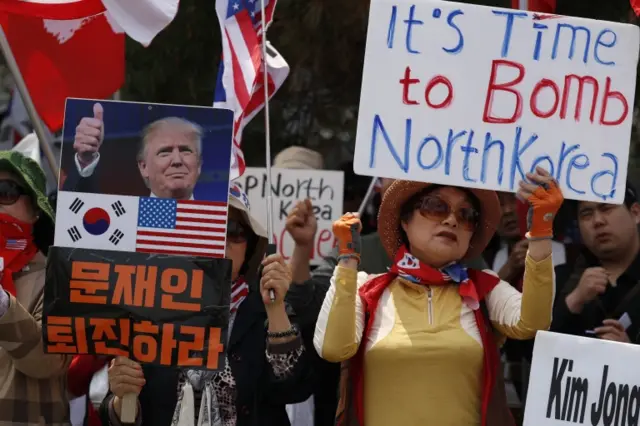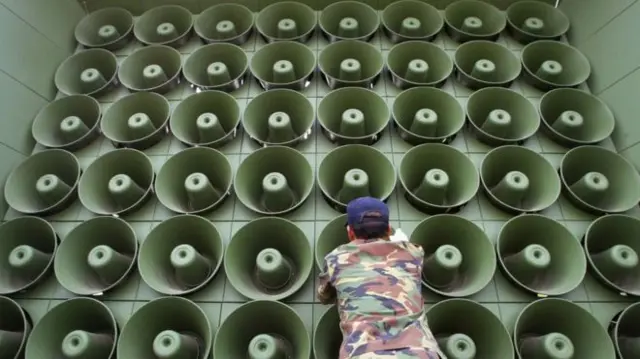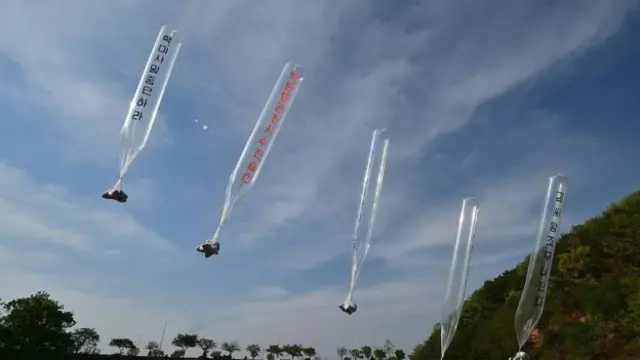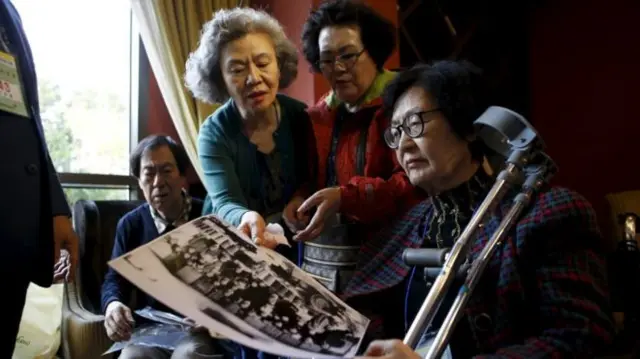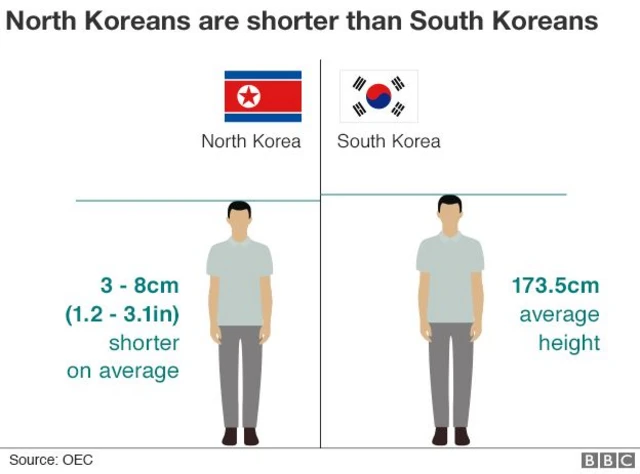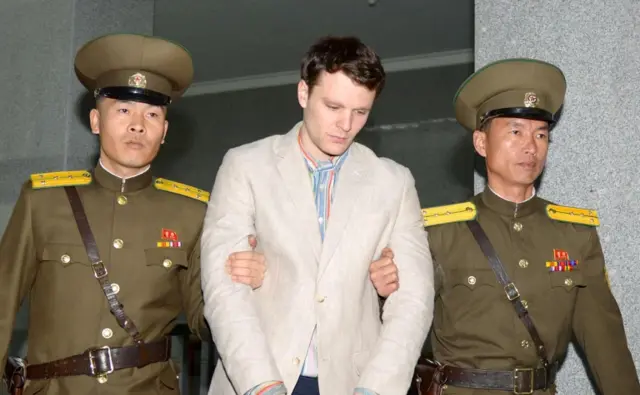Korea summit - what has happened so far?published at 05:52 BST 27 April 2018
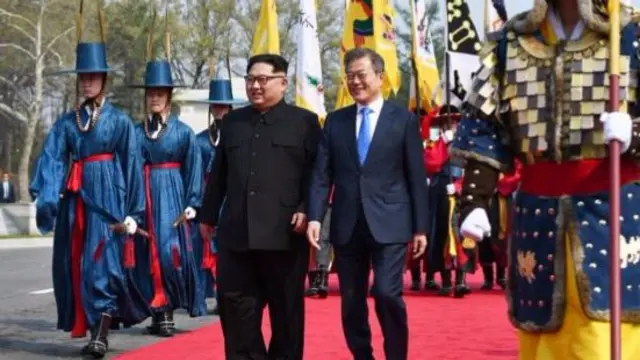 Image source, Getty Images
Image source, Getty ImagesHello, if you're just joining our live coverage of a hugely significant day on the Korean peninsula, here's a quick recap. The Korean leaders have had their lunch break and are resuming talks.
- Kim Jong-un has become the first North Korean leader to set foot in South Korea
- He was met by South Korea's Moon Jae-in, all smiles and with a very symbolic handshake
- In an unexpected move, Mr Moon also briefly stepped over into North Korea for another handshake
- There was live coverage of their ceremonial welcome and a brief first conversation
- Both leaders - technically still at war - welcomed the developments and said they wanted to move their relationship forward
- The actual talks were held behind closed doors - they are thought to cover nuclear weapons and a possible peace treaty
Read more: Kim Jong-un crosses into South Korea
